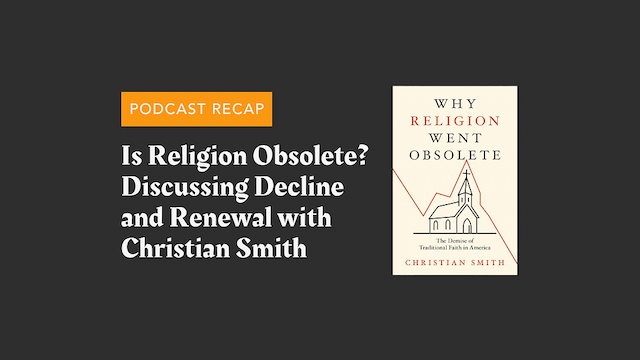Growth in God: The End of Us

For several weeks, I’ve prayed that God would continue to amaze his people with the gospel and that we do not grow stagnant in our walk with Christ. I pray also that we continue to press on toward the upward call of God in Christ (Philippians 3:14).
I can pray this prayer as easily as I can speak them. You can too.
The question is not whether God will answer with a “yes” or “no” because we know this is God’s will for his children. The question is, will we recognize God’s affirmative answer to this prayer? Will we recognize his “yes?” Will we be spiritually alert?
What can we do to remain spiritually alert to recognize God’s work in our lives and never lose our wonder of the gospel? I would identify three main things: 1) Deny our desires, 2) Purposefully plead the blood of Christ alone, and 3) Actively pursue humble gratefulness to God for his work.
My goal over the next three articles is to flesh each point to create an overall picture of spiritual growth. This will be less of a “how-to” series and more of a step back in amazement at God’s work in the lives of his people.
Deny Our Desires
“And he said to all, ‘If anyone would come after me, let him deny himself and take up his cross daily and follow me. For whoever would save his life will lose it, but whoever loses his life for my sake will save it. For what does it profit a man if he gains the whole world and loses or forfeits himself? For whoever is ashamed of me and of my words, of him will the Son of Man be ashamed when he comes in his glory and the glory of the Father and of the holy angels’” (Luke 9:23-26).
The kingdom of God seems to be built on paradoxes. To live, we must die. To gain, we must give. To become rich, we must become poor. This is purposeful because Jesus tells us his kingdom is not of this world (John 18:36). We are even told to despise the things of this world so that we may gain Christ. For the Christian, this ought to be simple enough. But we also know this is a constant battle even in our regenerate state. Why is this so hard to do if the Spirit has changed our desires, and we have been given the mind of Christ (1 Corinthians 2:16)?
A Life of Sacrifice
Following Christ’s command to deny ourselves means coming to the end of ourselves – putting our desires to rest and living a life of serving others and, ultimately, the kingdom of God. This process is painful and is referred to as sanctification.
This is one way we can observe God’s answer to our prayer for amazement at the gospel: through the constant surrender of our desires to God’s sovereignty. Does he not tell us his ways are higher than ours (Isaiah 55:8-9)? This takes constant spiritual effort and must be done repetitively. Perhaps this is why Paul, in Romans 12, tells us to present our bodies as “living sacrifices.”
Devotion Through Obedience
In the Old Testament’s sacrificial system, once an animal was sacrificed, it was dead, never to be sacrificed again. This is obvious enough. But God calls his children to be living sacrifices – a life offered over and over and over again on the altar and putting ourselves to death over and over and over again so that Christ’s light might shine through us.
In reference to Romans 12:1, John Calvin says, “The principal requirement for doing good works is for us to understand that we are consecrated to the Lord; and from this it follows that we must cease to live to ourselves, and devote all the actions of this life to obedience to him.” (Calvin: Commentaries, Philadelphia: Westminster Press, 1958, 314.)
I love Calvin’s quote on Romans 12 because he brings out a key point. Our good works and obedience to God–denying ourselves—flow out of being consecrated to God. Our devotion to God is the fountain from which our self-sacrificing lifestyle flows, not vice versa. Through God’s mercies, we can die to ourselves and live to him.
So What?
Here are three main ways to apply this overall idea of dying to ourselves so that we might live to God, keeping in mind that it is through dying to ourselves that we become more spiritually sensitive.
Ask godly friends and family members if they would describe you as a sacrificial person – ready to give emotionally, physically, and spiritually to those around you. Welcome their feedback and pray over areas that may need improvement.
Pray that God would make you willing to live sacrificially. This is part of his sanctification in your life.
Pray that God will show you how small you are, how much you need the gospel, and how big and glorious he is.
Brittany Proffitt lives in Dallas and is a writer and content manager for So We Speak.












